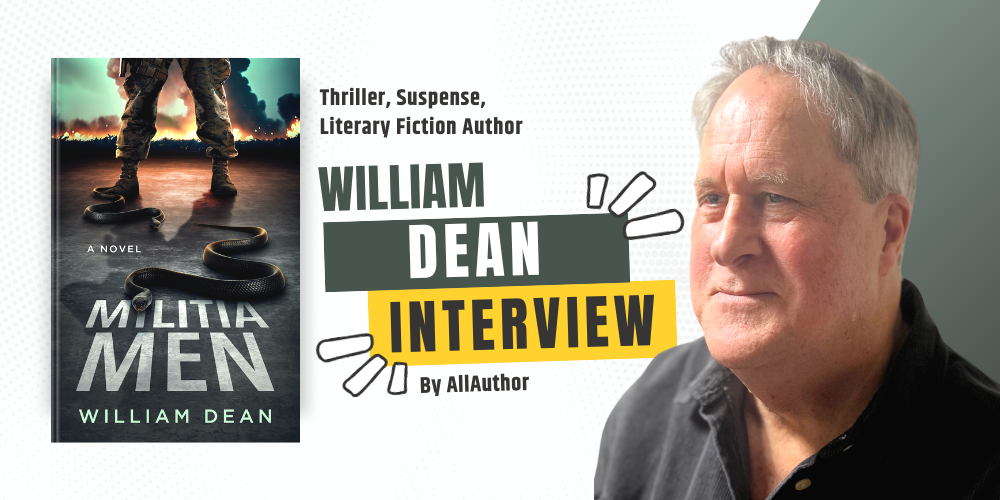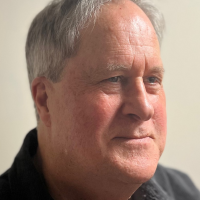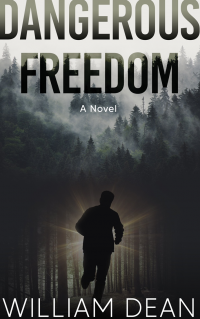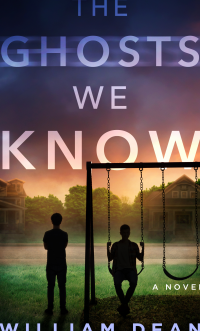William Dean Interview Published on: 13, Nov 2023
 Can you tell us about your background as an investigative journalist and how it has influenced your career as a novelist?
Can you tell us about your background as an investigative journalist and how it has influenced your career as a novelist?
My long career as a reporter and editor filled me with great ideas. The idea for my first novel, “Dangerous Freedom,” sprang from a series of prison interviews I did with the man who became the protagonist. In real life, he was a robber-turned-jailhouse lawyer who became such an irritant to the Idaho prison system that he was literally released in the dead of night, put on a plane and dumped on a remote island in Alaska. Pretty good material for a budding author!
Practicing journalism for so long, interviewing hundreds of people, also honed my research skills and gave me an ear for dialogue. The downside, or rather, continuing challenge, is breaking free from the bounds of concise writing and just having fun with it.
Could you share some of your favorite authors or books that have influenced your writing style or storytelling?Many years ago, Jess Walter sat next to me in the newsroom of the Spokesman-Review in Spokane, Wash. Now he’s a gifted novelist and storyteller, and I’m one of his biggest fans. His description is amazing, and the characters he composes are so vivid. … I’ve always admired Hemingway for his style, and in fact recently bought several of his classics to enjoy again. Those are two authors who pop into my head. There are so many more. Too many to list.
What led you to transition from journalism to fiction writing, and how has this shift impacted your storytelling?All my adult life, I’ve known that at some point I’d try writing a novel. Ultimately, I retired from journalism a bit early and focused my energies on “Dangerous Freedom.” I found it liberating to use my long-suppressed imaginative powers, which I discovered were just itching to be unleashed, but crafting a novel was far harder than I’d imagined. Letting a plot build slowly to a fever pitch is the opposite of news journalism, but it’s been a fun challenge for me.
Your books often feature suspenseful elements. What draws you to this genre, and how do you approach building tension in your narratives?My favorite fiction is suspense/thriller because it’s so edge-of-your-seat entertaining and filled with surprises. I tend to favor a slow fuse and an explosive climax. I want the reader to become so engrossed in the key characters that they feel their joy and pain. It’s really all about making those characters three-dimensional, with believable back stories.
Your previous novels, "Dangerous Freedom" and "The Ghosts We Know," are both set in the Pacific Northwest. What draws you to this region as a backdrop for your stories?Well, I live here. It’s a beautiful region, filled with unspoiled forests and rivers and snow-capped peaks. There’s also a bit of spooky mystery to woods that are dark and misty. I try to bring a vivid sense of place to my books. In “Militia Men,” the main setting is an old apartment building in downtown Astoria, very much like the place where I lived while looking for a house to buy.
The presence of sea lions in Astoria seems to be a source of inspiration for you. Can you share how they've impacted your creative process?When they bark and roll around on the docks, it cracks me up. Some old-timers here hate them because they’re so noisy, but I love it – even at 3 in the morning. I think I’ve mentioned them in each of my books just because they’re so visible. Maybe if I lived up in the woods, I’ve be writing about bears or eagles.
"Dangerous Freedom" and "The Ghosts We Know" have received recognition and awards. What do you believe makes your novels stand out in the genre of suspense and mystery?I don’t follow any genre formulas. I’ve had agents tell me that I need to have a murder or explosion in the first few pages. I’ve never done that. I was once told that I needed to kill off the main character. I haven’t done that either. I just sort of go with my gut and write for myself. If readers enjoy my books, that’s a bonus!
How do you go about crafting well-developed and relatable characters for your novels?Before I start writing, I sketch out the characters and their back stories. Sometimes it comes to me in dreams (truly) or in the shower or wherever, and I jot down whatever I can remember. I try to get in the protagonists’ heads. It’s not easy. In “Ghosts,” they were 70-something men, both veterans. In “Militia Men,” they were in their mid-twenties. So, totally different outlooks and background, but that makes it fun.
Research often plays a significant role in suspense novels. Can you discuss the research process for your books and how you ensure accuracy in your storytelling?I rely on my training as an investigative journalist to research someone or something effectively. Writing hard-nosed news stories that could generate lawsuits also teaches you a healthy respect for accuracy. I tend to do a lot of research up-front, then more after the first draft. I like to visit the places I write about in order to describe them more fully, but also describe them accurately. I like to handle the weapons I write about, too. I’m blessed with a diverse group of beta readers who often question facts and plausibility, which is an awesome backstop to have.
Many authors have rituals or routines they follow during the writing process. What does your typical writing day look like?Get up kinda early and head to the coffee maker. Once my brain is working and I’m fairly certain I won’t be disturbed, I’ll open up the laptop and continue where I left off, building the story. I have a detailed outline handy, but it’s really just there to nudge me if I get stuck. It’s really all in my head. My goal is to write two pages a day. If I get on a roll and the creative juices are flowing, I try not to stop.
How do you approach the balance between realism and creativity when writing suspense novels, especially those with investigative elements?For “Militia Men,” I researched militia groups intensely, including several in Oregon. By the time I got to writing, I was confident that the fictional group would feel real to the average reader, from the leaders’ speech to their actions and core beliefs. The group in the novel, True Patriots, may have drifted into far-right violence, but I sought to convey that in the minds of members they were trying to save America. A sort of warped patriotism.
What advice do you have for aspiring writers looking to pursue a career in fiction, especially in the suspense genre?Go for it! Just don’t expect to make a lot of money right off the bat. Take the starving artist approach, at least at first. Hone your craft and put dreams of a bestseller and global book tour aside. The suspense genre is really crowded, so it’s hard to get noticed. But trust me: If you’re talented, you will.
Your current home is in Astoria, Oregon, a place known for its unique character and natural beauty. How has living there shaped your writing?There’s a powerful artsy vibe in Astoria that I sort of tapped into. Every time I stroll through the downtown, I find another hidden gallery or artisan’s studio. It’s amazing and inspiring. Even the rain is energizing, although I couldn’t begin to explain why. I don’t think I could write as creatively or freely anywhere else.
Can you tell us about your latest work or any upcoming projects you're excited about?I’m outlining a fourth book that is my most ambitious project yet. I hope to start writing this winter. Beyond that, I’ve really enjoyed my hobby, which is writing about craft beer. I write columns for two local publications and have a blog called Astoria Beer Zone. It’s very fun.
Who or what introduced you to AllAuthor? How would you describe your experience so far?AllAuthor has been an entirely positive experience. I’ve used the promotional banners on social media several times. It’s well worth the modest cost.
Share William Dean's interview
William Dean, a former award-winning investigative journalist, is an accomplished author known for his suspense novels set against the captivating backdrop of the Pacific Northwest. With two gripping books to his name, "Dangerous Freedom" and "The Ghosts We Know," Dean resides in the picturesque town of Astoria, Oregon.




